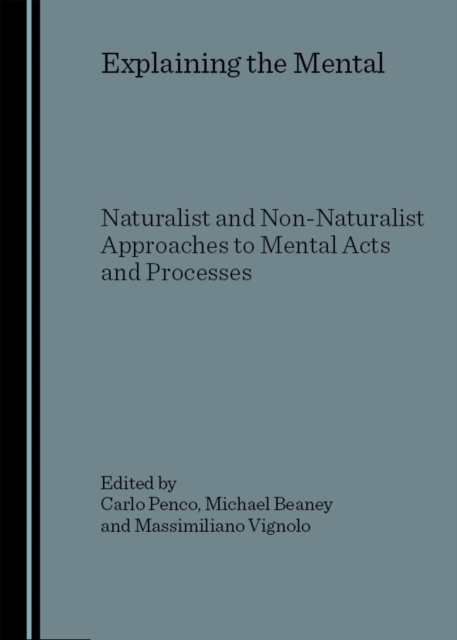
None Explaining the Mental : Naturalist and Non-Naturalist Approaches to Mental Acts and Processes PDF
Edited by Michael Beaney, Carlo Penco
Description
The aim of this collection of papers is to present different philosophical perspectives on the mental, exploring questions about how to define, explain and understand the various kinds of mental acts and processes, and exhibiting, in particular, the contrast between naturalistic and non-naturalistic approaches.
There is a long tradition in philosophy of clarifying concepts such as those of thinking, knowing and believing. The task of clarifying these concepts has become ever more important with the major developments that have taken place over the last century in the human and cognitive sciences - most notably, psychology, sociology, linguistics, neurophysiology, AI, and cognitive science itself. In all these sciences, there is a need to delineate the domain of the mental and to elucidate the key concepts and underlying assumptions. This need is widely recognized, but approaches and answers vary significantly. Some stress the representational features involved in most of our mental processes, others the inferential dimension; some stress the necessity of using empirical data, others the need to refine ideas before pursuing and drawing on empirical research.
The papers collected in this volume are grouped into four parts, on language and thought, on knowledge, belief and action, on intentionality, and on naturalism. The volume will be welcomed by all those engaged and interested in debates about the mental in philosophy and the human and cognitive sciences.
Table of Contents
PART I: LANGUAGE AND THOUGHT
Andrew Woodfield, Public Words Considered as Vehicles of Thinking
Andrea Bianchi, Speaking and Thinking (Or: A More Kaplanian Way
to a Unified Account of Language and Thought)
Stefano Predelli, The Strange Case of the Missing Constituent
PART II: KNOWLEDGE, BELIEF AND ACTION
Pascal Engel, Taking Seriously Knowledge as a Mental State
Carlo Gabbani, Epistemology and the Eliminative Stance
Jennifer Hornsby, Knowledge, Belief and Reasons for Acting
Wolfgang Kuenne, Some Varieties of Deception
PART III: INTENTIONALITY
Sandro Nannini, Intentionality Naturalised
Elisabetta Sacchi, Thought and Thinking: the Ontological Ground of
Intentionality
Elisabeth Pacherie, Is Collective Intentionality Really Primitive?
PART IV: NATURALISM
Marcello Frixione, Do Concepts exist? A Naturalistic Point of View
Tim Crane, Cosmic Hermeneutics vs. Emergence: the Challenge
of the Explanatory Gap
Achim Stephan and Robert C. Richardson, What Physicalism Should
Provide Us With
Mario De Caro, The Claims of Naturalism
Information
-
Download - Immediately Available
- Format:PDF
- Pages:266 pages
- Publisher:Cambridge Scholars Publishing
- Publication Date:26/03/2009
- Category:
- ISBN:9781443806534
Information
-
Download - Immediately Available
- Format:PDF
- Pages:266 pages
- Publisher:Cambridge Scholars Publishing
- Publication Date:26/03/2009
- Category:
- ISBN:9781443806534






